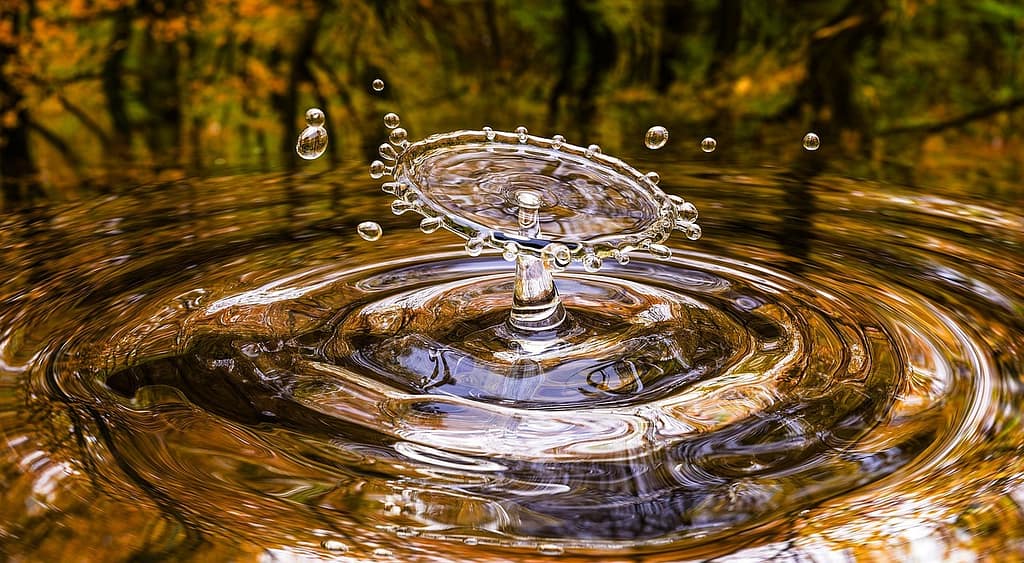We all understand the importance of staying hydrated. Our bodies require water for many functions, including temperature regulation, joint lubrication, nutrient transport, and digestion. However, with so many beverage options available, how can you quench your thirst while also improving your overall health? Spring water emerges as a top contender, offering a distinct combination of hydration and health benefits.
I. What is Spring Water?
Spring water isn’t just your average tap water poured into a fancy bottle. It has a fascinating journey before reaching your glass. Here’s what sets it apart:
- Underground Origins: Spring water originates from natural underground sources, often deep within aquifers – layers of rock or sand saturated with water.
- Natural Filtration: As water percolates through these layers, it undergoes a natural filtration process. Sand, gravel, and rock formations act as filters, removing impurities and enriching the water with minerals.
- Emerging from the Earth: Eventually, the water reaches the surface, bubbling up as a spring or seeping through an artesian well (a well that taps into a pressurized aquifer).

II. Health Benefits of Spring Water
Consumption of natural spring water has numerous health benefits. For starters, it is an excellent source of hydration. Spring water contains important minerals such as calcium and magnesium, both of which are essential for bone health. Drinking pure spring water can also help remove toxins from the body and maintain a healthy digestive system.
Spring water provides more than just pure refreshment. Because of its natural filtration and mineral content, it has several potential health benefits:
A. Mineral Content
Spring water is not devoid of minerals like tap water that undergoes extensive treatment. In fact, unlike many bottled waters labeled as “purified,” spring water retains some of the valuable minerals it picks up on its underground journey. Here’s a closer look at some key minerals and their potential benefits:
- Calcium: This abundant mineral is the building block of strong bones and teeth. Studies suggest that calcium from mineral water sources might be even better absorbed by the body compared to calcium from milk or supplements. This means spring water could be a great way to support bone health and potentially reduce the risk of osteoporosis.
- Magnesium: Magnesium, sometimes known as the “relaxation mineral,” is essential to more than 300 biological processes. It supports nerve transmission, blood sugar regulation, and muscle contraction. Incorporating magnesium-rich spring water into your diet may alleviate the symptoms of cramping in your muscles, enhance blood sugar control, and promote normal nervous system operation.
- Potassium: This essential electrolyte is crucial for maintaining healthy blood pressure. It also supports muscle function and promotes proper nerve signaling. Drinking spring water with potassium can help regulate blood pressure, prevent muscle fatigue, and ensure your nervous system functions optimally.
These are just some of the minerals you might find in spring water. The specific mineral content can vary depending on the source.
B. Hydration
We must not underestimate the importance of staying hydrated. Water makes up approximately 60% of our bodies and is essential to all bodily processes. Drinking enough water helps to remove toxins, transport nutrients, lubricate joints, and regulate body temperature. Spring water, with its crisp flavor and lack of added sugars and flavors, is an excellent way to stay hydrated throughout the day and maintain a healthy body.
C. Taste
While taste is subjective, some people find spring water to be more refreshing than tap water because it contains naturally occurring minerals. In comparison to sugary drinks or artificially flavored beverages, spring water has a clean, crisp taste that can quench your thirst without any unwanted additives.

III. Important Considerations
While spring water offers potential benefits, it’s important to be aware of some key factors:
A. Source and Safety
Not all spring water sources are created equal. It is critical to select spring water from a reputable brand with stringent quality standards. Look for brands that bottle their water directly from the source and test it on a regular basis to ensure it is free of contaminants. The United States Food and Drug Administration (FDA) regulates the bottling of spring water to ensure that it meets quality standards.
B. Mineral Levels and Individual Needs
Spring water’s mineral content varies depending on its source and geological location. While some people may benefit from the extra minerals, those with special dietary needs or health conditions should consult a doctor before significantly increasing their mineral water consumption.
iV. Spring water VS. Purified water
Purified water has undergone a carefully controlled filtration and purification process to remove impurities and contaminants, whereas spring water is sourced from natural mineral springs or boreholes.
The Environmental Protection Agency and the United States Food and Drug Administration both consider bottled spring water and purified water to be safe for consumption. The optimal choice between the two is primarily determined by availability, convenience, and personal preference.
People who prefer spring water do so because they believe the minerals in the water improve its flavor and make it healthier than other options. The stringent quality standards may make purified water users feel safer. Furthermore, it is more widely available and cheaper than spring water.
V. Spring Water vs. Other Beverages
When it comes to hydration, spring water stands out from the crowd compared to some other popular options:
- Sugary Drinks: Sugary drinks like sodas, juices, and sports drinks often contain high amounts of added sugar, which can contribute to weight gain, diabetes, and other health problems. Spring water, on the other hand, is sugar-free and calorie-free, making it a healthier choice for long-term hydration.
- Tap Water: While tap water is a readily available and cost-effective option, its quality can vary depending on location. Some areas may have tap water with a strong taste or odor due to mineral content or chlorine treatment. Spring water offers a consistent taste and mineral profile, and depending on your local water quality, it might be a more preferable choice.
- Flavored Bottled Water: Flavored bottled water might seem like a fun alternative, but it often contains artificial flavors, sweeteners, and colors, adding unnecessary calories and potentially harmful ingredients to your drink. Spring water provides a natural, refreshing taste without any artificial additives.
- Coffee and Tea: While coffee and tea can be hydrating beverages, they also contain caffeine, which can be dehydrating for some people, especially if consumed in excess. Spring water offers a caffeine-free way to stay hydrated throughout the day.

Vi. Environmental Impact
While spring water offers potential health benefits, it’s important to consider the environmental impact of bottled water consumption. Here are some things to keep in mind:
- Plastic Waste: The plastic bottles used for spring water can contribute to plastic pollution if not properly recycled. Look for brands that use recycled plastic or are exploring alternative sustainable packaging options.
- Carbon Footprint: Transporting bottled water can contribute to greenhouse gas emissions. Consider refilling reusable bottles with spring water whenever possible to minimize your environmental footprint.
VIi. Making Informed Choices
Spring water can be a healthy and refreshing way to stay hydrated. By understanding its potential benefits and considering the important factors mentioned above, you can make informed choices about incorporating spring water into your daily routine. Here are some tips:
- Choose a reputable brand: Look for brands that bottle their water directly at the source and undergo regular testing to ensure safety and quality.
- Consider your needs: If you have specific dietary needs or health conditions, consult your doctor before significantly increasing your intake of mineral water.
- Be mindful of the environment: Opt for brands that use recycled plastic or are exploring sustainable packaging options. Refill reusable bottles with spring water whenever possible to reduce plastic waste.
- Enjoy a variety: Spring water is a great choice for hydration, but you can also incorporate other healthy beverages like unsweetened tea or water with a squeeze of lemon or cucumber for added flavor.

VIiI. Conclusion
Staying hydrated is essential for maintaining good health. Spring water is a natural and refreshing way to quench your thirst, and it may also contain valuable minerals. You can incorporate spring water into your healthy lifestyle routine by understanding its potential benefits, considering the source and your specific requirements, and making environmentally conscious choices. So, the next time you reach for a drink, consider grabbing a bottle of spring water and taking a refreshing step toward better hydration and overall health.





Pingback: Best Lakes for Fishing in the US: Top Destinations for Anglers - Techy Tempest
Pingback: Spring Water or Purified Water: Making the Right Choice for Your Family - Techy Tempest